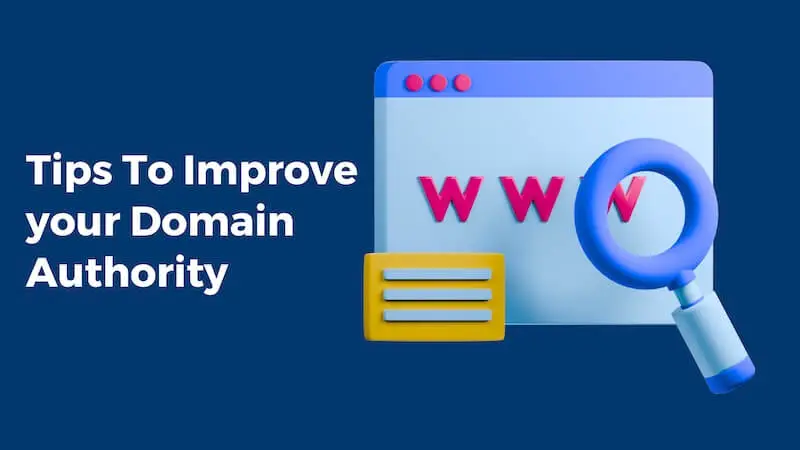Have you ever wondered why some websites appear first when searching for something online? One reason is something called “domain authority.” This article will explain what domain authority is and why it matters. We will also talk about how it helps with SEO and inbound marketing.
What is a Domain Authority?
Domain authority (DA) is like a score for websites. This score shows how likely a website is to rank high on search engines like Google. The score ranges from 1 to 100. A higher score means the website is more likely to rank well. Big websites like Google and Facebook have high domain authority.
How is Domain Authority Calculated?
Domain authority is calculated by a company called Moz. They look at many factors to give a website its score. Some of these factors include:
- Backlinks: These are links from other websites to your website. If many good websites link to your site, your domain authority goes up.
- Content Quality: High-quality content that people find useful can boost your score.
- Website Structure: A well-organized website that is easy to navigate can also help.
Why Does Domain Authority Matter?
Domain authority matters because it helps search engines decide which websites to show first. If your website has a high domain authority, it’s more likely to appear at the top of search results. This means more people will visit your site. You can read more about this in why domain authority matters.
How to Improve Your Domain Authority

Improving your domain authority takes time and effort. Here are some steps you can take:
Create High-Quality Content
Write articles, blog posts, and other content that people find helpful. The more useful your content, the more likely other websites will link to it.
Get Backlinks
Reach out to other websites and ask them to link to your site. You can also write guest posts for other blogs.
Optimize your website
Make sure your website is easy to use. Fix any broken links and make sure your pages load quickly.
Use SEO best practices
SEO stands for search engine optimization. This means making changes to your site to help it rank better on search engines.
What is SEO?
SEO, or search engine optimization, is all about making your website better so that it shows up higher in search results. Here are some basic SEO tips:
- Use Keywords: Keywords are the words people type into search engines. Use keywords in your content that are related to what your website is about.
- Optimize Titles and Descriptions: Make sure your titles and descriptions include your keywords. This helps search engines understand what your page is about.
- Use Headers: Use headers (H1, H2, H3) to organize your content. This makes it easier for people and search engines to read.
- Add Images: Use images in your content. Make sure to add alt text, which is a description of the image, to help search engines understand what the image is about.
What is Inbound Marketing?

Inbound marketing is a way to attract customers by creating valuable content and experiences tailored to them. Unlike outbound marketing, which interrupts your audience with content they don’t want, inbound marketing forms connections they are looking for and solves problems they already have.
How SEO and Inbound Marketing Work Together
SEO and inbound marketing go hand in hand. Here’s how:
Attract Visitors
SEO helps your website show up in search results. This brings more visitors to your site. Check 5 more ways to attract viewers.
Create Valuable Content
Inbound marketing focuses on creating content that helps your visitors. This content keeps them on your site longer.
Build Trust
When your site ranks high and offers valuable content, people trust your site more. This makes them more likely to become customers.
Generate Leads
By attracting visitors and building trust, you can turn visitors into leads. Leads are people who are interested in your product or service and may become customers.
Practical Steps to Boost Domain Authority with SEO and Inbound Marketing
- Content Creation: Write blog posts, articles, and guides that answer questions your audience has. Use keywords that people are searching for.
- Build Backlinks: Connect with other websites and ask them to link to your content. This can be done by guest posting, creating infographics, or collaborating on projects.
- Use Social Media: Share your content on social media platforms. Engage with your audience by responding to comments and questions.
- Optimize for Mobile: Make sure your website looks good and works well on mobile devices. Many people use their phones to browse the internet.
- Track Your Progress: Use tools like Google Analytics to see how your website is performing. Track your domain authority score with Moz.
The Importance of Technical SEO
Technical SEO is another key part of improving domain authority. It involves making sure your website is set up correctly so that search engines can easily find and rank your content. This includes things like fixing broken links, making sure your site loads quickly, and setting up redirects properly.
For example, understanding the difference between a 301 and 302 redirect is important. A 301 redirect is used when a page has permanently moved to a new location, while a 302 redirect is for temporary changes. Using the right type of redirect helps maintain your website’s authority and ensures that visitors are directed to the correct pages. You can learn more about this in our detailed article on 301 Redirect vs 302: Understanding SEO and Implementation.
Common SEO Mistakes to Avoid
- Keyword Stuffing: Using too many keywords in your content can hurt your rankings. Use keywords naturally.
- Ignoring Mobile Users: If your site doesn’t work well on mobile devices, you could lose a lot of visitors.
- Not Updating Content: Keep your content up to date. Regularly add new information and remove outdated content.
- Ignoring SEO Basics: Don’t forget to optimize your titles, descriptions, and headers.
Conclusion
Domain authority is an important part of SEO and inbound marketing. It helps your website rank higher in search results, which brings more visitors to your site. By creating high-quality content, getting backlinks, and optimizing your site, you can improve your domain authority. Remember, SEO and inbound marketing work together to attract visitors, build trust, and generate leads. Follow these steps, and you’ll see your domain authority and website traffic grow over time.
Additional Tips
- Stay Patient: Improving domain authority takes time. Keep working on your SEO and inbound marketing strategies.
- Learn and Adapt: SEO rules can change. Stay updated with the latest SEO practices and adapt as needed.
By following these tips and strategies, you can improve your website’s domain authority and see better results in search engine rankings.







